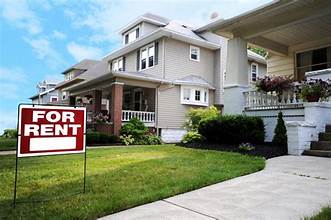Learn how to find the right home for the right price. Taking the emotion out makes great financial sense. Take the smart approach to home buying.
Home Buying – How to avoid paying too much
Whether you’re a first-time buyer or a veteran of the real estate game, buying a home can be a mammoth process. It’s an emotional time often accompanied by difficult choices. Those same difficult choices are tied directly to costs and your ultimate return and happiness.
Finding the right home for your family’s needs is hard, but managing to avoid paying too much is another mastery of skills entirely. The following will show you not only how to make sure you’ve found the right house, but also how to negotiate the right price.
Know what you’re shopping for before you start
This first step is understanding what you are seeking. Your family has certain needs which must be fulfilled. Also, there are many desires which may or may not ultimately be fulfilled. Take an unemotional look into those needs and desires.
Do you choose a three-bedroom home with room for your family to grow or the one with a large backyard, perfect for entertaining? Is having a large kitchen more important than having an extra room?
Two lists should be created – a wish list (your desires) and a reality list (your needs). The reality list consists of those items which your family really needs. They are “non-negotiables”. On the other hand, the wish list contains those items which would be nice to have.
Prioritize the lists and the goal is clear – your next home needs to have most, if not all, of your reality list items and hopefully a few of the top wish list items. These lists will keep your efforts channeling in the proper direction.
Shop for a mortgage before you shop for a home
Getting a loan pre-approval is the smart way to shop for a home. It tells the sellers that you’re a serious prospect and you’ll know in advance the maximum mortgage you can afford. Make sure you get a commitment in writing.
It’s easier than ever to qualify for a home loan. Lenders have modified qualification rules and created programs designed to help people even if they have problems with their credit and employment histories. Many programs dramatically reduce down payments, so if money’s tight now you can still make that purchase.
First-time home buyers can benefit from the many lender programs that now exist. A reduced down payment is an example of such a program.
Pick the right real estate professional
From finding the right home to selecting a lender to meet your financial needs to getting proper property inspections to negotiating the best deal, it can be taxing for even the hardiest of souls. You need the right Realtor on your side.
The right real estate professional must have a high level of care, skill, and due diligence to ensure your best interests are at heart. They also have a team of other professionals to put at your disposal – lenders, lawyers, home inspectors, movers, etc.
Most sellers you encounter will have a team in their corner. Having a professional on your team is the best way to make sure you get the best deal possible.
Make sure your agent knows what you are looking for
Once you have a clear understanding of your reality and wish lists make sure your agent has those same lists. This communication is critical. Otherwise, you’ll both waste your time looking at the home you’re really not interested in and you could possibly miss out on the one that truly meets your needs and desires. Your shared goal is to find a place that meets your needs: your agent will then try to satisfy as many of your desires as possible.
A good agent will ask you many questions about what you’re looking for and what you can afford. And then they’ll listen carefully to your answers.
Yes, that too… location, location, location
The desirability and resale of your home-to-be depend on location more than any other single factor. The simple truth is – the value of your home is affected by the homes that surround it.
Assuming you’ve already considered the items that make up a desirable home and community – character, quality of schools, access to work and services, recreational facilities, entertainment, etc. – there are several elements that combine to make a good location.
Your first consideration is the neighborhood. Every neighborhood has its own unique character; you need to make sure you’d be comfortable in the one you’re thinking of living in. Take a long walk and observe carefully. Do people take care of their yards and homes? Are the yards fenced? Do children play in the streets? Talk to the neighbors and ask questions that give you a better feel for the area. Be careful not to appear judgmental – you might be talking to a future neighbor.
If the neighborhood is to your satisfaction, look at homes on the market in the area. Extremely large homes surrounding smaller ones tend to appreciate less than a large home among other large homes. Conversely, the smallest home in a neighborhood tends to be “pulled up” by the other homes on the block. However, it might take longer to sell than smaller homes when the time comes because many people are unwilling to pay extra for the neighborhood.
The outer edge of a neighborhood is usually not good for resale value. There are noticeable dividing lines between unlike neighborhoods. It could be a difference in architectural styles, home size, property use, or something else. Look at a home in the middle of a community of similar homes; it will hold its value better.
An exception to this rule is a home on the edge of a neighborhood bounded by woods, parkland, a golf course, or other open space. Natural boundaries appeal to most buyers and these “edge” homes can actually command a higher price. The exception is when there’s an unpleasant use planned for the open space. An open field with a babbling brook is nice; a new freeway, strip mall, or warehouse is not.
Other things that can negatively affect property values are traffic, sounds, smells, etc. Be sure to give the neighborhood a long, hard look. Preview the area at various hours of the day. The home you’re interested in may be perfect, but if the neighborhood has problems, your investment won’t be worth as much when the time comes to sell.
Use your real estate professional to narrow the prospect list –
A good agent brings to the table an in-depth knowledge of the current housing inventory in the area and continually updates that knowledge by touring homes as they are placed on the market. This is to your advantage. Trying to personally see every available home that might fit your needs would be an overwhelming process. If you are thoroughly communicating your needs and desires to your agent, then your agent can help you narrow down the list of prospective homes to those that best suit your family. This will save you much time and energy.
When the time comes to settle on one home, you can do it with the confidence that you’ve made a well-informed choice.
Show a little interest in everything you see
As you tour the homes on your shortlist, find something to admire in each one. If you don’t show any interest until you’ve finally fallen in love with a home, then you’ve put yourself at a competitive disadvantage. Never let anyone know how badly you want a home – it will cost you money!
Shop with your head, not your heart
Don’t forget the purpose of your reality and wish lists. Shopping for a home is an emotional process. Your heart will cost you money; using your head will save it.
Don’t ignore red flags when evaluating a home’s pluses and minuses
When evaluating the advantages and drawbacks of a particular property, be sure you know the difference between acceptable and unacceptable problems.
Some issues – peeling paint, worn carpeting, ugly wallpaper – are cosmetic and can easily be remedied. In fact, you can use these “problems” during negotiations to lower the asking price; after all, you’ll need to spend money to bring the house up to date. Make note of what you see that can be used to your advantage. Although hold back from nit-picking. If taken to extremes, you could end up alienating the seller and creating a hostile atmosphere.
Other problems may be warnings to walk away. Major foundation cracks, evidence of previous water damage, signs of serious dry rot or termite damage, antiquated electrical systems or plumbing – any one of these may cause you to reconsider your interest.
Don’t let a house’s positive attributes blind you to very real problems. If you do, the chances are good that you’ll end up spending much more than you ever expected down the line.
Hire a professional home inspector
Failing to do so, made the biggest home-buying mistakes list.
Spending a few hundred dollars for a professional home inspection may be the best investment you’ll ever make. A professional inspector brings experience in examining a great many homes, good evaluation standards, and an unbiased perspective. And a written report can be an excellent negotiating tool.
A Typical Inspection Looks at:
- Foundation (slab, crawlspace, basement, etc)
- Electrical, heating, and plumbing systems
- Floors, walls, and ceilings
- Attic
- Roof
- Siding and trim
- Porches, patios, and decks
- Garage
- Property drainage
Make sure you accompany your inspector on the tour. You’ll learn a lot about the home you’re thinking of buying.
Once you have your evaluation, the decision to proceed is yours. A home inspector only gives you a professional opinion of the home’s condition, not advice as to whether or not you should buy.
Not all fixer-uppers are good buys
You may be the type who looks at a home in need of significant work as a challenge and an opportunity to make money. Many people have bought fixer-uppers at below-market rates, invested a little sweat equity or a little more money on renovations, then eventually put it back on the market at a profit.
But if it isn’t priced low enough, you won’t recoup your investment of time, trouble, and expense. Before you proceed, do a careful evaluation of what you’ll have to invest in and consult your real estate professional to learn what you can reasonably expect to make when you put the home back on the market. And be sure to include the unexpected. There’s no such thing as a “sure thing”.
Choose a home with an eye toward future needs
Buying a home is a large investment. If you can stretch a little today to buy a home that you can grow in – whether it’s having a child, running a home-based business, or having room to build an addition – do it. In the long run, it will probably be less expensive than moving up to a marginally larger home when the need does arise.
Clarify who your agent is
Make sure you know who the agent you’re talking to represents. All agents have the responsibility to be open and honest with you and to let you know who they represent – the buyer, seller, or both. On-site agents of new communities most often represent the seller (new home builder), not you.
Ask for a written comparative analysis
One way to ensure that you don’t offer too much for a home is to ask your agent to prepare a written comparative market analysis. A CMA will show you the sale prices of comparable homes in the neighborhood. It also lists the asking prices of other homes in the area currently on the market.
You may find that the asking price is above what comparable homes in the neighborhood are actually asking for. Or you might even find another home in the area that’s a better choice. When you make an offer, you can use the CMA as evidence to show the seller why you believe your offer is reasonable.
Learn as much as you can about the seller
It’s true what they say… Knowledge is power. The reason behind a sale can often be used to your competitive advantage during negotiations. For example, a seller whose company has transferred him to another city is probably more motivated to sell than someone who is still looking for a new home.
Other signs of a motivated seller include a vacant house or a house that’s been on the market for several months with several reductions in the asking price.
Keep your own situation to yourself
Information can be used against you as well. How much you’re willing to spend, the size of mortgage you can afford, your move-in deadlines – it all can be used to extract more money out of your pocket. Be sure to tell your agent everything they need to know to be effective on your behalf, such as, how much you have for a down payment, the size of the mortgage you can afford, etc. However, keep your personal circumstances and timeline to yourself.
Use time to your advantage
Just as you have a time frame in which you wish to buy, the seller almost certainly has a deadline of his own. If you can learn the seller’s deadline, it’s another piece of information that can be used to negotiate a better deal.
Check your emotions at the door during negotiations
One of the costliest mistakes you can make is letting the sellers know how much you love their home. Once you’ve let it slip, you can forget about negotiating the price; the other side knows how motivated you are. In fact, a seller may see it as an opportunity to squeeze a little more money out of you even when you’ve made a good offer to start.
No matter how wonderful your home is, no matter how much you want it, keep it to yourself.
Don’t be afraid to negotiate
You may be the type who prefers a hard-and-fast price tag on everything. “I don’t like to haggle” is your approach. But negotiation is the key to getting a good deal. If your goal is to get the best home possible for the least amount of money, then you had better be prepared to play the negotiating game.
Stay out of bidding wars
Sometimes the seller’s agent will try to scare a hesitant buyer with the threat of another serious potential buyer. Don’t fall into this trap, it will only cost you money.
If there is another buyer, then the seller’s agent will try to get a bidding war going. In these situations, whoever wins also loses because the buyer ends up overpaying.
If there isn’t another buyer, there’s a good chance that the seller’s agent will come back with “the other deal” fell through. Be sure to let the other side know that you might be interested if that happens before you walk away.
Know your hidden costs
There’s more to buying a home than the mortgage. Don’t forget to factor in mortgage insurance, appraisal fees, inspection fees, title insurance, and every other dollar you’ll have to spend in order to know what you’re really paying for your home. With the help of a good agent, you should identify all of the costs.




